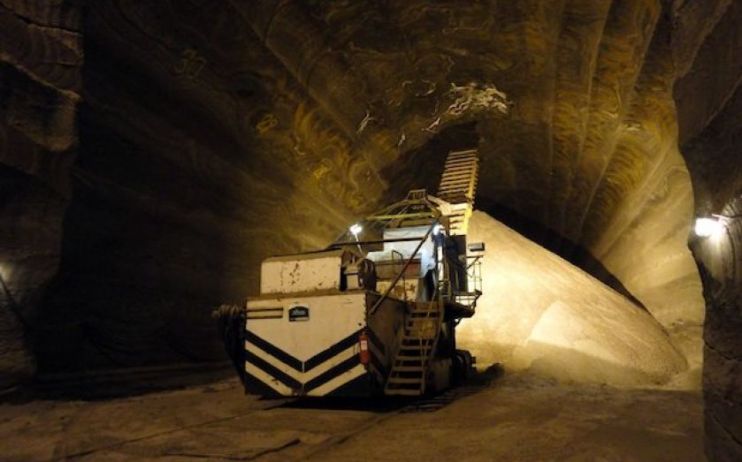A global food crisis could spell a bigger catastrophe than Vladimir Putin’s war

You always knew you had reached an intellectual dead end when foreign policy grandees sat around a table and recommended sanctions as an all-purpose answer to any problem.
While such an initiative almost never practically worked in terms of changing the policy of the offending country, it made political sense in a Washington sort of way. The beauty of such an outcome is that countries that enact sanctions are seen to be “doing something” about an important foreign policy problem while at the same time not doing enough to risk an escalation of the crisis. However, more often than not, it led to unintended consequences that made the sanctions cure worse than the original disease.
Alarmingly, a recent example of this doleful pattern is brewing. The prospects of a food crisis, as a result of Western sanctions on those companies connected to the agribusiness and fertiliser industry, could unwittingly damage the fragile global ecosystem. Such a crunch is increasingly likely, primarily caused by skyrocketing prices for fertilisers previously supplied from Russia and Belarus.
For the past three generations, mineral fertiliser has played a decisive role in alleviating global famine. According to the UN, since 1960, global food production has skyrocketed by 211 percent. The clear reason for this is the industrialization of ammonia production, the game-changer in terms of the world feeding itself. Today, roughly half of the world’s population (48 per cent) depends on fertiliser use.
There is no getting away from its importance, or from the fact that at present Russia and Belarus are both key players in the global fertiliser market, with a combined share of 16 percent of global production of mineral fertilisers and 22 percent of their export. Globally, 2 billion people depend on the import of fertilisers, with the two sanctioned states feeding a substantial 450 million of this number in 2019.
The EU’s feel-good sanctions have already heavily affected the global supply of mineral fertilisers, but the trade off is unclear. In Ukraine, the war wages on.
One example will suffice. Eurochem, headquartered in Switzerland and founded by Russian businessman Andrey Melnichenko, is the world’s second largest mineral fertiliser company by sales. European sanctions have hit the company at almost every conceivable level, in terms of finance, sales, logistics, production, and procurement, decimating this vital conduit for food production. As a result, the company has been forced to close two critical fertiliser plants in Belgium and Lithuania, which stands to hurt the neediest people in the world.
In fact, so far sanctions have led to a decrease in Russian fertiliser exports of 34 per cent in the first three months since their imposition, sufficient to feed 134 million people on an annual basis. And this is just the beginning. Overall, due to EU sanctions, more than 20 per cent of the global fertiliser trade is under threat, potentially affecting an astounding 750 million people.
Of course, there is a distinct geopolitical component to such folly. Limiting the fertiliser supply could lead to the threat of crop failures and famine in the most fragile countries in the tottering Middle East and North Africa, with catastrophic consequences for Europe itself. Refugees could then well flood across the Mediterranean, leading to further political radicalization in an already shaky southern Europe.
As for North Africa, anarchy and chaos worse than the 2011 Arab Spring could easily take place in famine-stricken countries if the food crisis gathers pace. Radical Islamists under the banner of jihad are well trained in using hardship to buoy themselves to power – a nightmare scenario for Europe and the world. Beyond the horrendous human suffering, Europe may well come to reap the whirlwind of its sanctions-happy folly.
What should the UK do about all this? First, the new government should encourage its European partners (and to do so itself) to look specifically at every sanctions plank and package from the commonsense realist notion of whether it helps or hinders global stability. Sanctions are neither always useful nor always disastrous. In the case of indirectly sanctioning the mineral fertiliser industry, London should strongly encourage Brussels to look at fertiliser and food security as a humanitarian issue and remove such strictures from imperiling the global food ecosystem.
No one is doubting that the Putin regime must be checked, or that some specific sanctions on Moscow are absolutely necessary. The question is one of policy, of how to do this in the most effective way, one which will not leave millions of people in danger of starvation.